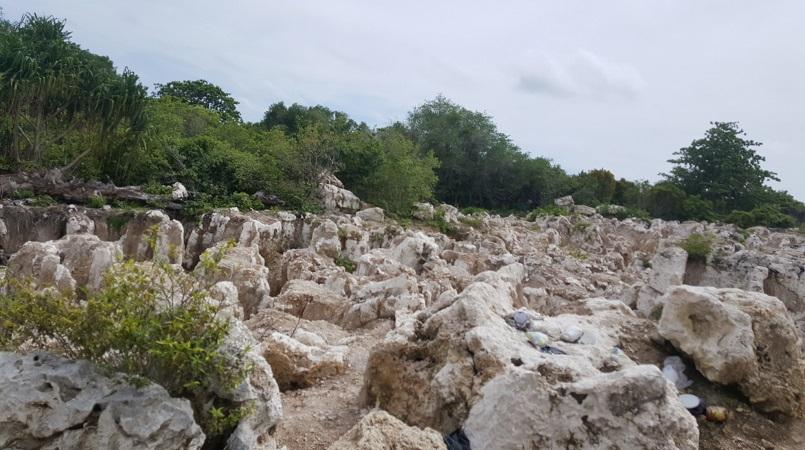
Nauru has honoured fifty years since the phosphate industry was handed over to Nauru in a celebration at the Aiue Boulevard, Wednesday 1 July.
President Lionel Aingimea, Madam Ingrid Aingimea and cabinet ministers attended the celebrations, known as Handover Day, which signifies the changing of ownership and management of Nauru’s phosphate from the British Phosphate Commission (BPC) to the Nauru Phosphate Corporation in 1970, and later rebranded to RONPhos in 2005.
RONPhos Executive Director Newman Rykers welcomed guests to the celebration recalling the great wealth phosphate brought Nauru and expressed his pride in being part of the company which he describes as being “the backbone of the economy of Nauru.”
“Ownership is something that is very important to a country as small as ours. The handover not only opened a door but it fulfilled a vision and ended a struggle. A struggle that began with our forefathers on their road to independence.
For while independence was gained in 1968, they had yet to regain ownership of the mining rights of their phosphate,” Mr Rykers said.
The BPC handed over the operations for approximately AU$20 million over three years to 1 July 1970.
On 1 July 2005 the rebranded RONPhos resulted in the creation of another organisation, the Nauru Rehabilitation Corporation which supports the work of RONPhos to rehabilitate mined out lands.
Looking to the next 50 years, President Lionel Aingimea said, “the plans RONPhos has in place to move forward positively… they’re thinking outside the box.”
“I have faith in the Minister (Reagan Aliklik) and the leadership group for RONPhos. I’m looking forward to seeing the positive work that will be coming out of RONPhos,” the president said.
Secondary phosphate mining continues on Nauru, with pre-COVID projected production levels of over 200,000 metric tonnes annually.
The mining of Nauru’s phosphate commenced in the late 1800s by the Pacific Phosphate Company later taken over by the British Phosphate Commission before handing over to NPC.
Throughout the 1980s, phosphate brought wealth to Nauru and her people placing Nauru with one of the highest GDP per capita in the world, with assets valued at over $1 billion.
Photo file Loop Nauru
